- Home
- Bryce Courtenay
April Fool's Day Page 3
April Fool's Day Read online
Page 3
The chicken guts man assured me that chicken offal was money for old rope. He had every chicken farm tied up within a day’s refrigerated trucking distance from Sydney and Melbourne. He talked with great enthusiasm and I must say I was becoming more and more impressed, until he mentioned in passing that you couldn’t get rid of the smell of chicken shit, that it stayed with you all the time, when you went to bed at night and when you awoke in the morning, even when you went on holidays.
The moment he said this I could smell it on him. Funny how the mind works. I was done for. Poor boys with ambition do not want to grow rich to the smell of chicken shit. As you can plainly see, already there was too much of the good-taste wedding present in me and not enough chicken guts. Too much Goldberg and not enough Rubens.
My mind, always apt to embroider, immediately took me into the future as an offal man, to a time when my three boys would go to Cranbrook, an expensive private school for the so-called better born. In my mind’s ear I could hear them asking to be let off a block from the school gates, embarrassed about a father who, at a distance of ten feet, smelled of chicken guts. Such was my need for security and respectability, that it never occurred to me that no boy at Cranbrook would have the faintest idea of how the insides of a chicken smelled – that the closest any of them had ever come to a dead chicken would be the strips of odourless white meat cushioned on shredded iceberg lettuce on their sandwiches. I am ashamed that, at the time, I lacked the imagination and the courage to accept what amounted to a very generous offer from an extremely nice man.
In fact, though much too polite to show it, I was somewhat upset at the offer. It wasn’t the way I pictured myself. Nor was this the way I’d imagined the wedding reception would be. I’d quite clearly seen myself seated among several high-flying operators who were impressed by my beautiful Jewish wife and my own obvious intelligence and who were offering me inside tips on the money market which would enable me to convert a meagre bank balance into a sizeable fortune almost overnight.
I knew this could be done. A bloke in the agency had told me that the casting director had told him about this well-known model whose name, naturally, he couldn’t divulge, but who’d slept with this Jewish multimillionaire who hadn’t paid her because that would have made her a whore. Instead, he’d told her to sell everything she owned, even her house, put it all into a particular company’s shares, and then keep the shares for six weeks – no more – before she sold them again. She’d followed his advice and was now worth a squil-lion; she would never have to work again, either on the catwalk or on her back.
It was all a matter of who you knew and a lot of the who-to-knows were right here at this wedding. But I, for one, wasn’t getting to meet any of them. Instead, I was saddled with a guy who was doomed for the remainder of his life to smell of chicken shit. Years later, when I was in hospital undergoing a spinal fusion, I met a pathologist who confirmed this phenomenon. He explained that a bug that lives in human excreta attaches itself to the olfactory membranes in the nose so that you can never personally get rid of the smell of excrement, even though others around you are unaware of it. Whether this is true of chicken shit I’ve never found out, but it seems to explain what had happened to my would-be benefactor. I recall feeling strongly that it was time to cut my losses and remind Benita that we had intended being home before nine.
What I had no way of knowing was that the battle of the bulging cheque books was about to begin. Crossed, double, triple and quadruple digits would be dashed from flashing pens in the war of The Golden Book. I was just going to nudge Benita and suggest that we kick the dust, when a stout, jowly, little guy with receding hair swept straight back and plastered with Brylcreem jumped up waving a cheque book. He walked importantly up to a microphone which was placed in front of the bandstand.
Instead of adjusting the microphone he stretched up high, almost on tip-toe, then turned his head towards the top table. “A big surprise!” he said, grinning and waving the cheque book above his head. “A big surprise, ladies and gentlemen, compliments Myers Chickens.” He paused and, grinning again, looked around scanning the tables in front of him, “Roasters, boilers and friers! Treat yourself tenderly, take home a Myers!”
There was laughter and some applause at his recital of the Myers Chicken slogan, though mostly, I must say, from the chicken meat side.
The little guy brought his gaze back to the distant top table. “The beautiful bride and the groom, may your names be inscribed in the book of life. My compliments also to the bridesmaids.” He was still holding the cheque book aloft. “You wondering maybe about the cheque book? No, I don’t think you wondering, I think maybe you got your pen already ready already.” He cleared his throat and brought the cheque book down. “Maybe somebody here doesn’t know me, so now I introduce myself. I am Morris Myers.” He paused as though waiting for a response and when this didn’t come added, “Myers Continental Chickens? You tried maybe a little Myers chicken? A little soup with loxchen? Or a nice breast?” Now there were smiles all round and Morris Myers, happy, pushed home the advantage, “We got kosher also, our Bondi shop, Campbell Parade.” He gave us all a big smile, his head slightly tilted, “Be nice, treat yourself tenderly, maybe you heard already on the television our advertising?”
Morris Myers was being unnecessarily modest. Myers was to chicken what Donald is to duck and every child over the age of three could sing the Myers Chicken jingle. Now, with both hands aloft, he held the cheque book again and tore a single cheque from it. “From Mrs Myers, my wonderful wife, also my boys, Joseph and Lennie, I pledge two thousand dollars for The Golden Book!”
Next to me the chicken guts man sighed, “Morris has got two boys and already both work in the business. Oh, my…” I could sense the longing for an offal heir in his voice.
Two thousand dollars was a great deal of money in those days and there was a gasp of appreciation from the audience and then tremendous applause. Morris waited for the clapping to die down, holding up his hand to quell the last of it. “My friends, let me tell you something maybe you haven’t thought a lot this subject. For two thousand years when the shophar is blown and we drink the wine of redemption at Rosh Hashanah we are saying: ’Next year in Jerusalem!"’ He looked about him. “Next year in Jerusalem,” he repeated quietly, though the microphone carried his words clearly to the hushed audience.
He paused again. “Now the time has come. God has kept His promise to His people, Israel belongs now to the Jews again, to you, also me. If we cannot go to break the rock, to dig the irrigation canals to bring water to the kibbutzniks who make ready the soil for trees that will make Israel a green, beautiful land again, then we must use this.” He held the cheque in his hand aloft. “Here is our spade and our dollar-muscles!” Morris Myers paused again, looking about him. “Who will be the next to honour the beautiful bride and the groom?” He wasn’t quite ready for a response and continued, “A tree. A tree that grows strong and tall and reaches to touch the blue sky. A tree that is one day so big it will make a great shade and has also a trunk so a man’s arms cannot come around it. A tree that can stand strong when the wind comes from the desert and has roots like iron that can bind and hold. Who will put his name on such a tree? A glorious name and also, you are getting a nice little brass plate by this tree, so the people who are coming by that tree, they will see your name, they will know who is giving this tree for Israel!” He pronounced it, Is-ray-el, as in the Hebrew language and his middle European accent seemed no longer slightly comic, but sounded mellifluous and ancient, almost biblical. I wondered how it must feel to be a Jew and return home to your promised land, after two thousand years. How it must be to begin the task of making the desert bloom again, carving the new Garden of Eden from the rock and the heat and the loose grains of dead sand.
There was the scrape of a chair on the parquet floor beside me and the chicken guts man leapt to his feet waving his cheque book. “I have here a spade! I have here muscle cash!” he cried, moving o
ver to the microphone.
Poor old Dudley and Gemma, their wedding, hijacked by Morris Myers for The Golden Book, never recovered. That night a dozen square miles of eucalypt forest were pledged to Israel as the Jewish cheque-book horticulturists from Down Under worked themselves into a planting frenzy faster than the speed of write.
Benita claims that it was a combination of my desperation, boredom, poor manners, indifferent upbringing and, probably, inebriation that caused what happened next. In a way I suppose she is right, although I wasn’t conscious of my physical actions at the time and I’m certain I wasn’t drunk.
The pen ploughing and cheque-book planting had been going on for at least an hour, with each cheque attached to a long, boring speech. It showed no sign of abating and like most of us at times of extreme boredom I found myself daydreaming. Only, I have never completely lost the ability of childhood to become totally lost, going so deeply down into my subconscious that I forget where I am and the dreaming becomes more real than the reality around me.
I suddenly became aware of Damon as he lay in his bassinet at home. His lips were blue and puckered, his skin so white it was almost translucent and his eyes tightly closed. It was much more than a premonition or a vague discomfort, it was a clear, clean image in the mind’s eye as though I were standing over him. There was something terribly wrong. I leapt from my chair and grabbed Benita, gripping her by the arm with both hands, attempting to pull her to her feet. “Come, we’ve got to go!” I hissed.
Taken by surprise, she rose to her feet, to the amazement of the doctor seated beside her. I released her arm and grabbed his. “You have to come, our baby is at home dying!”
The doctor stood. He wasn’t much bigger than I was, though broader about the shoulders. “You came here, to this wedding and your baby is dying?” He looked at Benita.
“Of course not!” Benita protested. She put her hand on his arm and smiled, trying to cover her embarrassment. “Mark, I’m sorry.” She threw a dirty look at me. “He’s not used to wine.”
“Please, Mark, please come, it’s true.” I tried to pull him by the arm but he pulled away. I was unaware that the entire table was looking at me.
Benita had had enough. “No, you come!” she spat, then she grabbed me, her sharp nails digging into my upper arm.
I grabbed her by the wrist, pulled her grip from my arm and made for the doorway. I was close to tears but no less convinced that something was terribly wrong with Damon. Benita must have stopped to get her handbag, then I heard her heels following me to the lift.
“Jesus! Are you crazy? What’s wrong with you?” she shouted, catching up.
“It’s Damon, there’s something wrong.” I offered no further explanation.
The lift pinged and the doors opened. It contained an elderly couple, so nothing further was said on the way down. As the lift opened into the hotel foyer I moved out first. “Wait outside on the pavement, I’ll get the car.” I started to run.
“Wait!” I heard Benita shout, but I kept on running, ignoring her call. I pulled up outside the front of the hotel where Benita waited and leant over to open the passenger side door. She jumped in, slamming the door violently behind her. “What’s the matter with you? How dare you humiliate me in front of everyone!” I pulled away fast. “Go on, kill us! Don’t go so bloody fast! What am I going to say to Gemma? You spoilt her whole wedding!” It came out in sharp, vituperative bursts. Then she started to sob, though I think, more from anger and humiliation than distress. “You’re drunk! Jesus! Don’t drive so bloody fast!”
I was not drunk; driving fast, yes, but not stupidly: concentrating on the road which was sheeny wet from a thunderstorm following the afternoon heat, though the rain had stopped before we’d come out of the hotel. “I’m sorry. I had this sudden premonition about Damon.” Even as I spoke it appeared sharp and quite clear, though I knew it sounded really crazy.
“Oh, you! I suppose you think it’s funny! You’re a …” She seemed lost for words. “You’re a bloody anti-semite!” Benita’s anger was now mixed with the frustration of knowing that I wasn’t going to explain any further. She folded her arms and sucked her bottom lip under the top one, then she hunched her shoulders and jammed into the corner, distancing herself as far from me as the car would allow.
The image of my dying baby son was still sharp in my mind. How could I explain to her that what had happened was a childhood response. A thing I’d learned sucking at a black breast. I was simply being African, which had nothing to do with reason and there was nothing I could do to stop it. I was reacting to an instinct so deep it didn’t occur to me to question it. In some unexplained things I was still a child of a different darker place and I was responding to voices of a different kind.
Fifteen minutes later, I turned sharply into the little dead-end street where we lived and pulled up in front of our two-bedroom cottage. I cut the ignition, grabbed the keys and leapt from the car.
The front door opened into a small passageway, with the doorway to the lounge on the immediate right so that you could look directly into it. The television was on low with light pumping from the screen, giving the room a bluish, semi-translucent darkness. Sarah must have heard my key rattle in the lock and she walked out of the lounge room into the lighted hallway. “Hi, Sarah. The baby? Everything okay?”
My words were an attempt to sound casual but I was breathing hard. Sarah looked confused, accurately sensing my anxiety and immediately thinking she must be guilty of something. “Yes, MrCourtenay. What’swrong? Have I…done something?” I made no reply; instead I brushed rudely past her and went into the lounge.
Twenty-four years later, I can still recall the picture on the black and white television screen, though I wasn’t conscious of looking at it as I crossed the room. The ABC nine o’clock news was on and showed uni students and the usual left-wing rat-bags and trade unionists carrying banners and placards passing the town hall in George Street in an anti-Vietnam demonstration. (Or that is how I thought of them at the time.) The long shot of the marchers cut suddenly to a close-up of Dr Jim Cairns, a popular Labor politician who parted his hair down the centre and seemed always to wear a slightly hurt expression, like someone who believes himself constantly misunderstood.
I crossed the room, opening a pair of slim louvre doors on to the small closed-in verandah we’d converted into a nursery for Damon. I turned on the light and moved over to the bassinet. Damon lay neatly tucked in under a blue blanket. He was a bit pale and I thought his lips lacked colour, but they were nothing like I’d seen them in my mind; his eyes were closed tightly, like a newborn kitten’s, but he seemed contented enough and quite naturally asleep. My first sensation was one of enormous relief. I placed my hands on the edge of the bassinet, tossed my head back and let out a huge sigh. I’d been wrong, my mind had been playing tricks. My relief was followed immediately by a feeling of incredible stupidity. My face started to burn, the heat rising to my forehead and breaking into sharp prickles. How was I ever going to explain myself to Benita?
I decided to pick Damon up and bring him to her for his evening feed. With her baby asleep in my arms, my wife couldn’t very well shout at me. And after I’d returned from taking Sarah home and she’d fed him and handed him to me for de-burping she would have calmed down somewhat. Feeding her baby would make her eyes go soft and, by the time Damon was put down again, I’d have thought of a way to explain my bizarre behaviour.
I could hear Benita saying something to Sarah as she entered the house. I pulled the blanket away from my sleeping son and reached down for him. Then I saw that his nappy was soaked with blood.
Three
Butterfly Needles, Hospitals and Sir
Splutter Grunt.
It was a month after Damon’s circumcision, in fact, well after Christmas, when our appointment came around to see Sir Seymour Plutta, knight of the realm, paediatrician and specialist at the Children’s Hospital, Camperdown. We were later to learn that his nickname among the
staff was, predictably, Splutter Grunt or, further abbreviated, S.G. The grunt was added to the splutter for reasons I was to discover some time later.
He was a greying, bristle-haired, stiffly put together little man in his mid fifties in a blue serge suit with fully buttoned waistcoat, starched cutaway white collar and navy blue club tie. If he’d been an animal he’d have been a rather irascible fox terrier. He also had a most peculiar walk. As he moved forward he would tug at the ends of his suit sleeve to cover an inch of protruding white cuff. First he’d pull one sleeve forward to bury a flash of miscreant white and then the other. The moment he released one sleeve to attend to the second cuff, the first reappeared, forcing him to repeat the motion.
It was this peculiar sleeve-tugging action that gave his walk its jerky appearance. As he tugged at his sleeve the movement seemed somehow synchronised with his neck and back, which would immediately straighten with a small, almost imperceptible jolt. All of this gave him the rigid appearance of an old-fashioned, wind-up tin soldier.
If I seem to be belabouring this description of Sir Seymour, it is because in all the years we were to know him this entire outfit, including his silk hose and immaculately shone, expensive, handmade black shoes, never altered. His clothes were himself and he gave the impression that they dressed a body as spindly and insubstantial as a Giacometti sketch. But for his blue serge suit and his pettish manner he might hardly have been there at all.

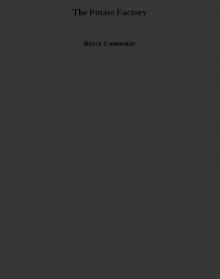 The Potato Factory
The Potato Factory The Power of One
The Power of One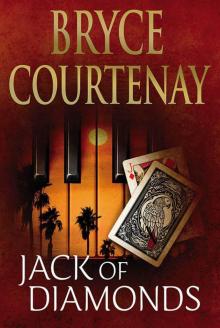 Jack of Diamonds
Jack of Diamonds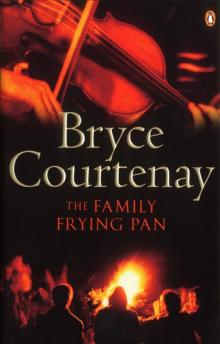 The Family Frying Pan
The Family Frying Pan April Fool's Day
April Fool's Day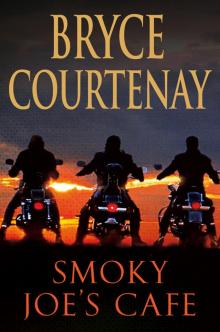 Smoky Joe's Cafe
Smoky Joe's Cafe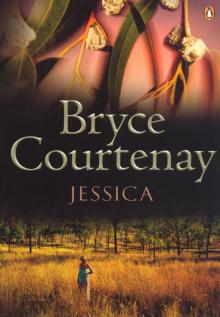 Jessica
Jessica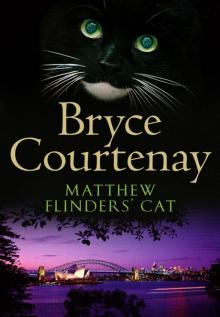 Matthew Flinders' Cat
Matthew Flinders' Cat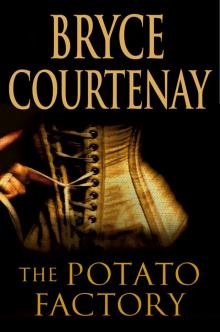 Potato Factory
Potato Factory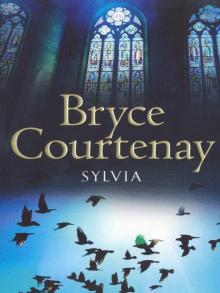 Sylvia
Sylvia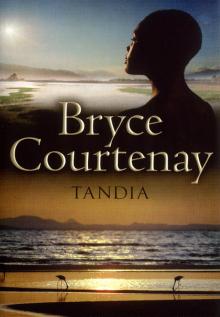 Tandia
Tandia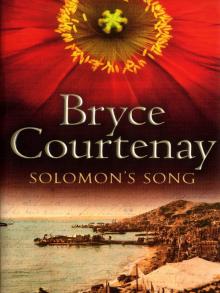 Solomon's Song
Solomon's Song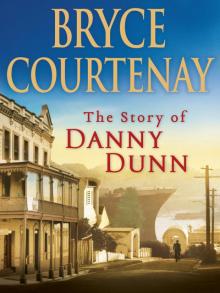 The Story of Danny Dunn
The Story of Danny Dunn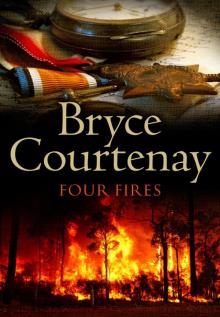 Four Fires
Four Fires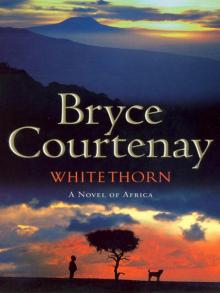 Whitethorn
Whitethorn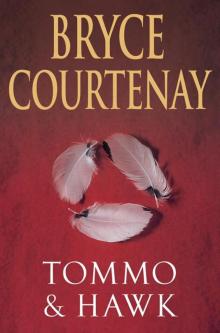 Tommo and Hawk
Tommo and Hawk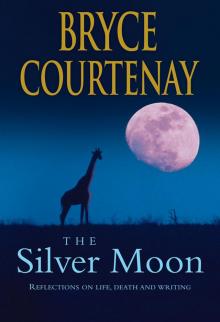 The Silver Moon
The Silver Moon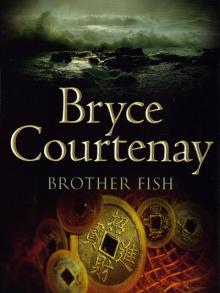 Brother Fish
Brother Fish FORTUNE COOKIE
FORTUNE COOKIE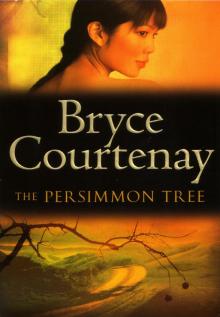 The Persimmon Tree
The Persimmon Tree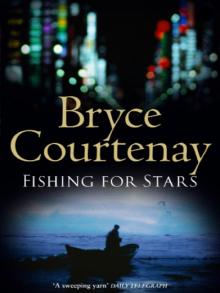 Fishing for Stars
Fishing for Stars